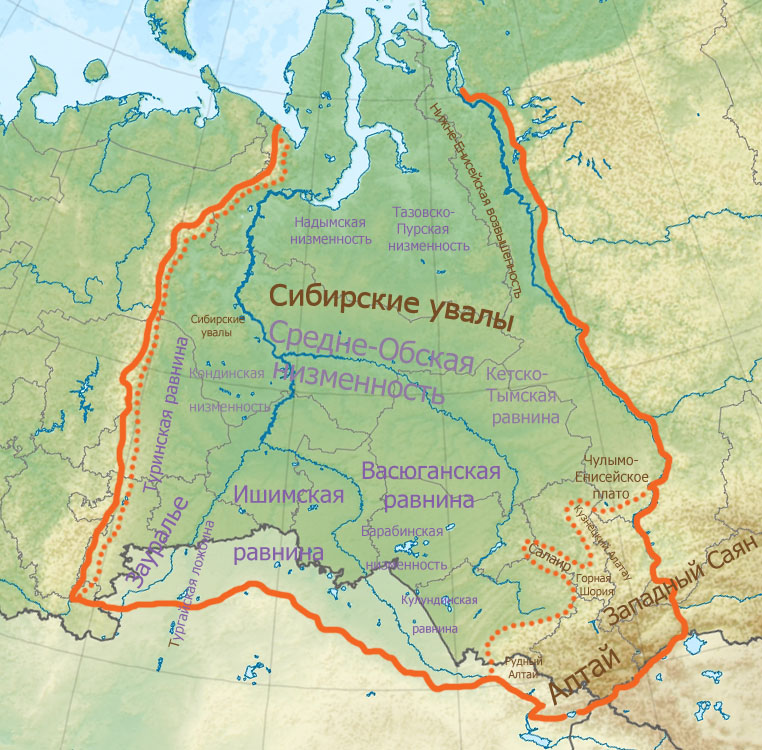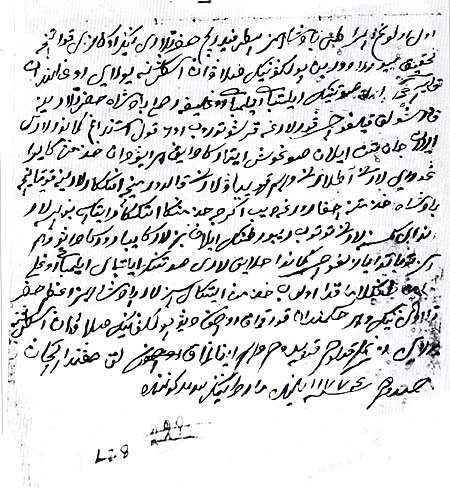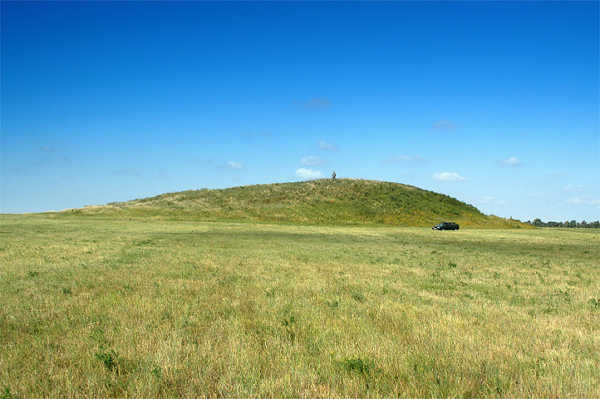|
Filipp Nefyodov
Filipp Diomidovich Nefyodov (Филипп Диомидович Нефёдов, 18 October 1838 in Ivanovo, Vladimir Governorate, Russian Empire – 25 March 1902 in Vladimir Governorate, Russian Empire) was a Russian writer, journalist, editor (''Remeslennaya Gazeta'', 1875-1876; ''Russky Kurjer'', 1879), ethnographer and archeologist who made hundreds of excavations in Povolzhye, Ural and West Siberia, studying ancient kurgans. Nefyodov have always sympathized with the Russian left radicalism; in March 1881, after the assassination of Tsar Alexander II, he was arrested and briefly incarcerated for having links with Sophia Perovskaya and Andrei Zhelyabov. He is credited with being the first in Russia to publish the story of Salawat Yulayev Salawat Yulayev ( ba, Салауат Юлай-улы; russian: Салават Юлаев; 16 June 1756 – 8 October 1800) was a Bashkir national hero who participated in Pugachev's Rebellion, warrior, poet and singer. Biography Sal ... [...More Info...] [...Related Items...] OR: [Wikipedia] [Google] [Baidu] |
Ivanovo
Ivanovo ( rus, Иваново, p=ɪˈvanəvə) is a types of inhabited localities in Russia, city in Russia. It is the administrative center and largest city of Ivanovo Oblast, located northeast of Moscow and approximately from Yaroslavl, Vladimir, Russia, Vladimir and Kostroma. Ivanovo has a population of 361,644 as of the 2021 Census, making it the List of cities and towns in Russia by population, 50th largest city in Russia. Until 1932, it was previously known as ''Ivanovo-Voznesensk''. The youngest city of the Golden Ring of Russia. The city lies on the Uvod River, in the centre of the eponymous oblast. Ivanovo gained city status in 1871, and emerged as a major centre for textile production and receiving a name of the "Russian Manchester". The city is served by Ivanovo Yuzhny Airport. Geography The Uvod River, a tributary of the Klyazma River, Klyazma, flows from north to south, dividing the city into two halves. There are also two rivers in Ivanovo: the Talka River, Talka ... [...More Info...] [...Related Items...] OR: [Wikipedia] [Google] [Baidu] |
West Siberia
Western Siberia or West Siberia (russian: Западная Сибирь, Zapadnaya Sibir'; kk, Батыс Сібір) is a part of the larger region of Siberia that is mostly located in the Russian Federation. It lies between the Ural region and the Yenisei River, which conventionally divides Siberia into two halves. Western Siberia covers an area of , nearly 80% of which is located within the West Siberian Plain. The largest rivers of the region are the Irtysh and the Ob. The West Siberian petroleum basin is the largest hydrocarbon (petroleum and natural gas) basin in the world covering an area of about 2.2 million km2, and is also the largest oil and gas producing region in Russia. In medieval times, the region was part of the Golden Horde. After its gradual decline during the 15th century, the Khanate of Sibir, centered on Tyumen, was formed within the area. In the late 16th century, most of Western Siberia was conquered by the Russian Empire, while its southern region be ... [...More Info...] [...Related Items...] OR: [Wikipedia] [Google] [Baidu] |
Russian Editors
Russian(s) refers to anything related to Russia, including: *Russians (, ''russkiye''), an ethnic group of the East Slavic peoples, primarily living in Russia and neighboring countries *Rossiyane (), Russian language term for all citizens and people of Russia, regardless of ethnicity *Russophone, Russian-speaking person (, ''russkogovoryashchy'', ''russkoyazychny'') *Russian language, the most widely spoken of the Slavic languages *Russian alphabet *Russian cuisine *Russian culture *Russian studies Russian may also refer to: *Russian dressing *''The Russians'', a book by Hedrick Smith *Russian (comics), fictional Marvel Comics supervillain from ''The Punisher'' series *Russian (solitaire), a card game * "Russians" (song), from the album ''The Dream of the Blue Turtles'' by Sting *"Russian", from the album ''Tubular Bells 2003'' by Mike Oldfield *"Russian", from the album '' '' by Caravan Palace *Nik Russian, the perpetrator of a con committed in 2002 *The South African name for a ... [...More Info...] [...Related Items...] OR: [Wikipedia] [Google] [Baidu] |
Russian Writers
This is a list of authors who have written works of prose and poetry in the Russian language. For separate lists by literary field: * List of Russian-language novelists * List of Russian-language playwrights *List of Russian-language poets A * Alexander Ablesimov (1742–1783), opera librettist, poet, dramatist, satirist and journalist *Fyodor Abramov (1920–1983), novelist and short story writer, ''Two Winters and Three Summers'' *Grigory Adamov (1886–1945) science fiction writer, ''The Mystery of the Two Oceans'' *Georgy Adamovich (1892–1972), poet, critic, memoirist, translator *Anastasia Afanasieva (born 1982), physician, poet, writer & translator *Alexander Afanasyev (1826–1871), folklorist who recorded and published over 600 Russian folktales and fairytales, ''Russian Fairy Tales'' *Alexander Afanasyev-Chuzhbinsky (1816–1875), poet, writer, ethnographer and translator *Alexander Afinogenov (1904–1941), playwright, ''A Far Place'' * M. Ageyev (1898–1973), ps ... [...More Info...] [...Related Items...] OR: [Wikipedia] [Google] [Baidu] |
Bashkirs
, native_name_lang = bak , flag = File:Bashkirs of Baymak rayon.jpg , flag_caption = Bashkirs of Baymak in traditional dress , image = , caption = , population = approx. 2 million , popplace = 1,584,554 1,172,287 , region2 = , pop2 = 41,000 , ref2 = , region3 = , pop3 = 58,500 , ref3 = , region4 = , pop4 = 4,253 , ref4 = , region5 = , pop5 = 1,200 , ref5 = , region6 = , pop6 = 8,000 , ref6 = , region7 = , pop7 = 610 , ref7 = , region8 = , pop8 = 300 , ref8 = , region9 = , pop9 = 400 , ref9 = , region10 = , pop10 = 112 , ref10 = , region11 = , pop11 = 1,111 , ref11 ... [...More Info...] [...Related Items...] OR: [Wikipedia] [Google] [Baidu] |
Salawat Yulayev
Salawat Yulayev ( ba, Салауат Юлай-улы; russian: Салават Юлаев; 16 June 1756 – 8 October 1800) was a Bashkir national hero who participated in Pugachev's Rebellion, warrior, poet and singer. Biography Salawat Yulayev was born in the village of Tekeyevo, in Shaytan-Kudeevsky volost of Ufa province of Orenburg Governorate (now Salavatsky District) of Bashkortostan. Tekeyevo no longer exists, as it was burned in 1775. Salawat Yulayev was at the head of the Bashkortostan uprising from the very beginning of the country war of 1773–1775. He was seized by the Russian imperial authorities on November, 24th, 1774, and his father, Yulay Aznalin, was captured even earlier. Put into irons, they were sent to Moscow. Yulay Aznalin was a ''votchinnik'' (holder of patrimonial estate), a rich, intelligent and influential man. He was held in general respect among Bashkirs and was a Bauermeister (district foreman). The local authorities gave credence to him; hi ... [...More Info...] [...Related Items...] OR: [Wikipedia] [Google] [Baidu] |
Andrei Zhelyabov
Andrei Ivanovich Zhelyabov (russian: Желябов, Андрей Иванович; – ) was a Russian Empire revolutionary and member of the Executive Committee of Narodnaya Volya. After graduating from a gymnasium in Kerch in 1869, Zhelyabov got into a Law School of the Novorossiysky University in Odessa. He was expelled from the university for his participation in student unrests in October 1871 and sent away from Odessa. In 1873, Zhelyabov lived in a town of Gorodische (present-day Cherkas'ka oblast' of Ukraine) and maintained close ties with revolutionaries from Kiev and activists of the Ukrainian "Gromada". After his return to Odessa, Zhelyabov became a member of the revolutionary Felix Volkhovsky group (the Odessa affiliate of “ Chaikovtsi”) and conducted propaganda among workers and intelligentsia. He was arrested in late 1874 and then released on bail. Nevertheless, he continued his illegal activities. Zhelyabov was one of the suspects in the " Trial of the 193" ... [...More Info...] [...Related Items...] OR: [Wikipedia] [Google] [Baidu] |
Sophia Perovskaya
Sophia Lvovna Perovskaya (russian: Со́фья Льво́вна Перо́вская; – ) was a Russian Empire revolutionary and a member of the revolutionary organization ''Narodnaya Volya''. She helped orchestrate the assassination of Alexander II of Russia, for which she was executed by hanging. Life as a revolutionary Perovskaya was born in Saint Petersburg, into an aristocratic family who were the descendants by the marriage of Elizabeth of Russia. Her father, Lev Nikolaievich Perovsky, was the military governor of Saint Petersburg. Her grandfather, Nikolay Perovsky, was a governor of Taurida. She spent her early years in the Crimea, where her education was largely neglected, but where she began reading serious books on her own. After the family moved to Saint Petersburg, Perovskaya entered the Alarchinsky Courses, a girls’ preparatory program. Here she became friends with several girls who were interested in the radical movement. She left home at the age of six ... [...More Info...] [...Related Items...] OR: [Wikipedia] [Google] [Baidu] |
Alexander II Of Russia
Alexander II ( rus, Алекса́ндр II Никола́евич, Aleksándr II Nikoláyevich, p=ɐlʲɪˈksandr ftɐˈroj nʲɪkɐˈlajɪvʲɪtɕ; 29 April 181813 March 1881) was Emperor of Russia, Congress Poland, King of Poland and Grand Duke of Finland from 2 March 1855 until Assassination of Alexander II of Russia, his assassination in 1881. Alexander's most significant reform as emperor was the emancipation reform of 1861, emancipation of Serfdom in Russia, Russia's serfs in 1861, for which he is known as Alexander the Liberator ( rus, Алекса́ндр Освободи́тель, r=Aleksándr Osvobodytel, p=ɐlʲɪˈksandr ɐsvəbɐˈdʲitʲɪlʲ). The tsar was responsible for other reforms, including reorganizing the judicial system, setting up elected local judges, abolishing corporal punishment, promoting local self-government through the ''zemstvo'' system, imposing universal military service, ending some privileges of the nobility, and promoting university e ... [...More Info...] [...Related Items...] OR: [Wikipedia] [Google] [Baidu] |
Kurgans
A kurgan is a type of tumulus constructed over a grave, often characterized by containing a single human body along with grave vessels, weapons and horses. Originally in use on the Pontic–Caspian steppe, kurgans spread into much of Central Asia and Eastern, Southeast, Western and Northern Europe during the 3rd millennium BC. The earliest kurgans date to the 4th millennium BC in the Caucasus, and a part of researchers associate these with the Indo-Europeans. Kurgans were built in the Eneolithic, Bronze, Iron, Antiquity and Middle Ages, with ancient traditions still active in Southern Siberia and Central Asia. Etymology According to the Etymological dictionary of the Ukrainian language the word "kurhan" is borrowed directly from the "Polovtsian" language ( Kipchak, part of the Turkic languages) and means: fortress, embankment, high grave. The word has two possible etymologies, either from the Old Turkic root ''qori-'' "to close, to block, to guard, to protect", or ''qur-'' "t ... [...More Info...] [...Related Items...] OR: [Wikipedia] [Google] [Baidu] |
Ural (region)
Ural (russian: Урал) is a geographical region located around the Ural Mountains, between the East European and West Siberian plains. It is considered a part of Eurasian Steppe, extending approximately from the North to the South; from the Arctic Ocean to the end of the Ural River near Orsk city. The border between Europe and Asia runs along the Eastern side of the Ural Mountains. Ural mostly lies within Russia but also includes a small part of Northwestern Kazakhstan. This is a historical, not an official entity, with borders overlapping its Western Volga and Eastern Siberia neighboring regions. At some point in the past, parts of the currently existing Ural region were considered a gateway to Siberia, or even Siberia itself, and were combined with the Volga administrative the divisions. Today, there are two official namesake entities: the Ural Federal District and the Ural economic region. While the latter follows the historical borders, the former is a political product; t ... [...More Info...] [...Related Items...] OR: [Wikipedia] [Google] [Baidu] |
Russian Empire
The Russian Empire was an empire and the final period of the Russian monarchy from 1721 to 1917, ruling across large parts of Eurasia. It succeeded the Tsardom of Russia following the Treaty of Nystad, which ended the Great Northern War. The rise of the Russian Empire coincided with the decline of neighbouring rival powers: the Swedish Empire, the Polish–Lithuanian Commonwealth, Qajar Iran, the Ottoman Empire, and Qing China. It also held colonies in North America between 1799 and 1867. Covering an area of approximately , it remains the third-largest empire in history, surpassed only by the British Empire and the Mongol Empire; it ruled over a population of 125.6 million people per the 1897 Russian census, which was the only census carried out during the entire imperial period. Owing to its geographic extent across three continents at its peak, it featured great ethnic, linguistic, religious, and economic diversity. From the 10th–17th centuries, the land ... [...More Info...] [...Related Items...] OR: [Wikipedia] [Google] [Baidu] |




.jpg)


